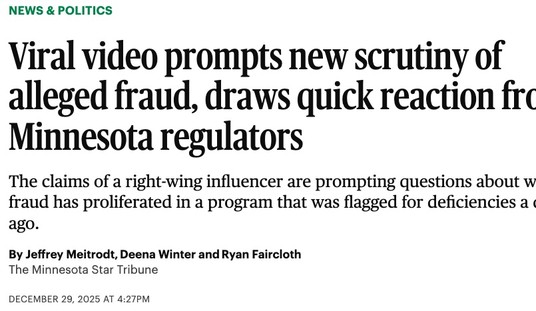Via CNS, we’re 24 hours late with this but it shouldn’t go unnoticed. Have we now reached the point where, for all intents and purposes, any amount of tax increases will render a deal intolerable no matter how many glorious spending cuts are packed into it? A 10-to-one ratio isn’t good enough, apparently; how about 20 to one? Fifty to one? What if the Democrats offered to pass Cut, Cap, and Balance in return for, say, $500 billion in new revenue from households that make $1 million or more? What if they asked for $1 trillion in new revenue and agreed to pass Paul Ryan’s budget in return? This can’t simply be about not wanting to slow the economy by adding new tax burdens. Deep, short-term spending cuts also run that risk, yet one of the big knocks on the debt-ceiling deal from the right was that there weren’t enough of those in the final package.
NRO’s Kevin Williamson, who wrote a book on the evils of socialism and how they’re creeping into federal legislation, can’t believe it:
Every candidate said he would oppose a cuts-taxes plan that contained a 10:1 ratio of cuts to taxes. Chalk one up to the crazies. If Congress wanted to get rid of tax exemptions and exclusions amounting to $100 billion in new taxes in exchange for $1 trillion in tax cuts, and Republicans turned the deal down, I would personally drive down to Washington and pelt them with rotten vegetables, and possibly with rocks. $100 billion in new taxes plus $1 trillion in cuts balances the budget in 2012.
At Commentary, Peter Wehner asks WWRD?
It is hard for me to imagine that any serious conservative who wants to limit government wouldn’t accept such a deal. The alternative, after all, would not be to reduce the size and scope of government without tax increases; it would be to keep Leviathan at its current size instead of significantly cutting it at the cost of a relatively small tax increase.
Remember this, too: in 1982 Ronald Reagan was willing to sign what was then the largest tax increase in American history (TEFRA) because he believed he’d get three dollars in cuts for one dollar in tax increase. Reagan came to regret his tax increase — but not because the ratio was wrong but because Democrats never delivered on the spending cuts. If Reagan had gotten the cuts he asked for — and the York/Baier question pre-supposes the spending cuts would be real – he would have taken that deal.
Are Republicans in 2011 saying that a deal that would be far better than one Reagan expected and agreed to is simply beyond the pale?
If so — if taxes cannot be raised under any circumstance — then we have veered from economic policy to religious catechism.
Remember, when Gallup polled Republicans last month on what sort of debt-ceiling deal they wanted, just 26 percent insisted on no taxes. 41 percent wanted a deal comprised “mostly” of spending cuts and 24 percent were willing to accept an equal amount of taxes and cuts. Among independents, the numbers were slightly worse. Ross Douthat saw this part of the debate last night and imagines the Democrats’ attack line next year: “Mitt Romney/Rick Perry/Candidate TK would rather cut Medicare to the bone than close a single tax loophole for the rich.” That’s not quite true — congressional Republicans are open to closing loopholes, especially in the context of tax reform — but it’s true enough insofar as raising rates on any group, by basically any amount, is evidently now so unthinkable that we’ll torpedo trillion-dollar deals over it. Except, of course, we won’t: Matt Bai is surely right that Romney, Pawlenty, and Huntsman, at least, would sign a huge deficit reduction package that included tax hikes as president no matter what they say here. They’re transparently pandering to Norquist-ian dogma among the base, which is lovely strategy for a primary if you don’t mind that they’re lying and we all know it. Says Bai, “And this is the central disconnect between Washington and the broad center of the country, the source of all that fury you see in the polls. Fewer and fewer Americans engage as activists in either party, which means that primaries are financed and waged primarily by the ideological extremes on either side. Meanwhile, a growing number of American voters identify themselves as independent and demand a government that functions…” He’s not kidding about independents.
I’m morbidly curious to see what happens if the Super Committee can’t make a deal on tax reform and Republicans are suddenly staring down the barrel of the Bush tax cuts lapsing at the end of 2012. Obama will have no incentive to compromise by extending the cuts for the rich yet again during next year’s campaign. Polling shows the public is on his side there and he knows he can’t cave on yet another deal now that the left’s enraged over the debt-ceiling agreement. The GOP’s only chance to extend across-the-board cuts again is to win the election. If they don’t, tax hikes are coming, one way or another.








Join the conversation as a VIP Member